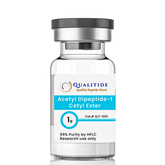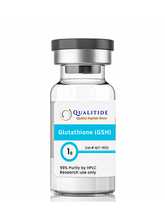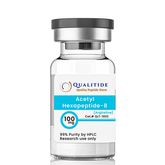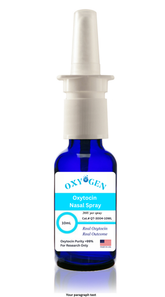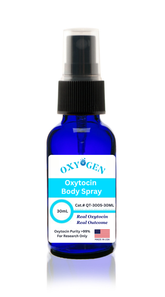The Science Behind NAD+ Nasal Spray

Nicotinamide adenine dinucleotide (NAD) is a crucial coenzyme found in all living cells. NAD exists in two forms: NAD+ and NADH. The primary role of NAD is to facilitate redox reactions, where it alternates between NAD+ (oxidized form) and NADH (reduced form). This cycling is fundamental to cellular respiration and the production of ATP, which is essential for energy transfer within cells.
Functions of NAD
-
Energy Metabolism:
- NAD is central to both glycolysis and the Krebs cycle.
- It plays a vital role in the electron transport chain, ultimately leading to ATP production.
-
DNA Repair:
- NAD is a substrate for enzymes like PARPs (Poly ADP-ribose polymerases), which are involved in DNA repair mechanisms.
-
Gene Expression:
- NAD+ levels influence the activity of sirtuins, a family of proteins that regulate gene expression and aging.
-
Neuroprotection:
- Emerging studies highlight NAD’s role in protecting neurons from degeneration, relevant in disorders such as Parkinson’s and Alzheimer’s.
NAD+ Boosters by Nasal Spray
Typically found in every living cell, NAD+ levels decline with age, there is significant interest in methods to boost NAD+ levels, especially in the brain. NAD nasal spray has emerged as a non-invasive way to deliver NAD+ into brain through olfactory syetem therefore bypass circulation system and prevent degradation. It offers a direct delivery method that some claim may provide quicker and more efficient absorption compared to oral supplements.
How NAD Nasal Spray is Absorbed
- Nasal Mucosa Absorption: The nasal spray application allows NAD to be absorbed through the nasal mucosa, bypassing the digestive system, which can degrade NAD. This direct absorption ensures a higher concentration reaches the bloodstream more rapidly.
- Blood-Brain Barrier: One significant advantage of this method is its ability to cross the blood-brain barrier more effectively through olfactory system, potentially offering direct benefits to brain cells.
Key Functions of NAD+
- Energy Production: NAD+ is vital in the conversion of nutrients into cellular energy (ATP).
- DNA Repair: It assists in repairing damaged DNA while maintaining genomic stability.
- Neuroprotection: Enhancing NAD+ levels can potentially protect against neurodegenerative diseases.
- Anti-Aging: Known to combat age-related cellular decline.
Potential Benefits of NAD Nasal Spray
- Enhanced Cognitive Function: Considered potentially beneficial in improving mental clarity and focus.
- Increased Energy and Stamina: Users often report reduced fatigue and improved workout endurance.
- Cellular Repair and Regeneration: May aid in faster recovery from physical exertion or injury.
Related Products
- NAD Boosters: Products aimed at naturally increasing NAD+ levels through precursors like nicotinamide riboside (NR) and nicotinamide mononucleotide (NMN).
- Glutathione Nasal Spray: Often used in conjunction with NAD nasal spray, glutathione is a potent antioxidant purported to support detoxification and immune function.
Benefits of NAD Nasal Spray: Beyond the Basics
NAD Nasal Spray serves not only as a convenient NAD booster for everyday users but also offers several additional benefits that extend beyond mere supplementation. Developed with healthcare professionals in mind, this product’s applications range from enhancing cognitive function to improving overall cellular health.
Cognitive Enhancement
NAD Nasal Spray has been shown to support brain function significantly. Users often report improvements in memory, attention, and mental clarity, attributed to NAD’s role in facilitating mitochondrial function and energy production in brain cells. Enhanced cognitive performance can be particularly beneficial for individuals managing high-stress environments or those experiencing age-related cognitive decline.
Increased Energy Levels
A direct benefit of NAD’s role in cellular metabolism is the notable increase in energy levels users experience. NAD facilitates the transformation of nutrients into usable energy within cells, thereby combating fatigue and promoting overall vitality. This aspect is particularly advantageous for those with chronic fatigue syndrome or individuals recovering from strenuous physical activities.
Cellular Repair and Longevity
One of the standout benefits of NAD Nasal Spray is its ability to aid in cellular repair and promote longevity. The spray enhances the activity of sirtuins, proteins linked to DNA repair and cellular longevity. Regular use can help delay the aging process at a cellular level, contributing to overall health and wellness in the long term.
Supports Detoxification Pathways
NAD Nasal Spray also plays a critical role in supporting the body’s natural detoxification pathways. By boosting NAD levels, it enhances the efficacy of enzymes involved in detoxification processes, thereby promoting skin health, liver function, and overall systemic detox. Users might find an added advantage when combined with Glutathione Nasal Spray, which can further aid detoxification and antioxidant protection.
Mood Stabilization and Stress Reduction
Using NAD Nasal Spray has been linked to mood stabilization and stress reduction. NAD levels influence the production of neurotransmitters, which play an essential role in mood regulation. Users often report an improved sense of well-being and reduced symptoms of anxiety and depression, making it a valuable tool for mental health maintenance.
Athletic Performance and Recovery
Athletes benefit from NAD Nasal Spray through enhanced performance and accelerated recovery times. The increased energy availability and improved mitochondrial function support higher endurance levels and quicker recovery post-exercise. These benefits make it an attractive supplement for high-performance individuals striving for optimal physical conditioning.
Metabolic Support
For those looking to manage weight, NAD Nasal Spray can be a valuable addition due to its role in metabolic regulation. Enhanced NAD levels help optimize the metabolic rate and promote efficient energy utilization, thus supporting weight management efforts and overall metabolic health.
Conclusion
Incorporating NAD Nasal Spray into one’s routine offers myriad benefits that extend well beyond fundamental supplementation, impacting cognitive function, energy levels, cellular health, and much more. Suitable for various users—from healthcare professionals to everyday individuals—the spray stands out for its comprehensive and multifaceted applications.
Potential Side Effects and Safety Concerns
Determining the side effects and safety concerns of the NAD nasal spray is crucial for healthcare professionals considering its use.
Common Side Effects
Some users may experience mild side effects, including:
- Nasal Irritation: Users frequently report discomfort or irritation in the nasal passages after administration.
- Headaches: Occasional headaches may occur, especially in new users.
- Digestive Issues: Some individuals may experience nausea or gastrointestinal discomfort.
Serious Side Effects
Though rare, more serious side effects may include:
- Allergic Reactions: Symptoms like rash, itching, swelling, or severe dizziness can indicate an allergic response.
- Respiratory Issues: Difficulty breathing or wheezing should prompt immediate medical attention.
- Neurological Symptoms: Severe headaches, dizziness, or confusion warrant discontinuation and consultation with a healthcare provider.
Long-term Safety
The long-term safety profile of NAD nasal spray is still under investigation. Current studies are insufficient to definitively determine the long-term effects, necessitating ongoing research. Healthcare professionals should monitor patients for any emerging issues during prolonged use.
Interactions with Other Products
Patients using other NAD boosters, such as glutathione nasal spray supplements, should exercise caution. Combining these products may amplify side effects or lead to unforeseen interactions. A thorough review of the patient’s medical history and current supplement regimen is essential before initiating NAD nasal spray therapy.
Who Should Avoid NAD Nasal Spray?
Certain demographics should avoid using NAD nasal spray:
- Pregnant or Nursing Women: Due to a lack of sufficient safety data.
- Individuals with Chronic Health Conditions: Those with severe underlying conditions should consult with their healthcare provider beforehand.
Reporting Adverse Effects
Patients experiencing any adverse effects should report them to their healthcare providers immediately. This feedback is crucial for understanding the broader safety profile of NAD nasal sprays.
Healthcare professionals must remain vigilant about these potential side effects and safety concerns, ensuring they provide informed counsel to their patients. Reviewing frequently asked questions (FAQ) and staying updated on the latest research findings are vital steps in this process.
Comparing NAD Nasal Spray to Other NAD Supplementation Methods
In the context of NAD supplementation, such as NAD nasal spray, healthcare professionals frequently seek an effective NAD booster. Comparing different NAD supplementation methods can help answer frequently asked questions (FAQs). NAD nasal sprays, for instance, are designed to increase NAD+ levels efficiently, similar to how a glutathione nasal spray aims to boost glutathione levels.
Oral NAD Supplements
- Absorption Rate: Oral NAD supplements often encounter issues with bioavailability; the digestive process can degrade a significant portion of NAD+, leading to reduced efficacy.
- Convenience: Oral supplements are easy to consume but may require higher doses to achieve desired effects.
- Onset of Action: The onset is generally slower compared to other methods, typically taking weeks to months for noticeable results.
Intravenous (IV) NAD Therapy
- Absorption Rate: Direct infusion into the bloodstream offers near 100% bioavailability, delivering immediate and full doses of NAD+.
- Convenience: IV therapy can be invasive, requiring clinical settings and professional oversight, limiting convenience.
- Onset of Action: Provides rapid onset of action, with users often experiencing benefits within hours.
Sublingual NAD Supplements
- Absorption Rate: Sublingual supplements bypass the digestive system, offering higher bioavailability than oral supplements though still not optimal.
- Convenience: Easy to use but some may find the taste and maintaining the supplement under the tongue slightly discomforting.
- Onset of Action: Faster onset than oral supplements but generally slower than nasal sprays and IV therapy.
NAD Nasal Spray
- Absorption Rate: Absorbed directly through the nasal mucosa, avoiding the digestive system, leading to a higher, quicker bioavailability rate.
- Convenience: Simple to administer, non-invasive, and portable, offering a high level of convenience for regular use.
- Onset of Action: Rapid absorption leads to a quick onset of action, with potential benefits noticeable shortly after administration.
Comparative Insights
- Bioavailability: NAD nasal spray and IV therapy both offer superior absorption rates compared to oral and sublingual methods.
- Ease of Use: While oral and nasal spray methods are non-invasive and user-friendly, sublingual supplements and IV therapy require careful administration.
- Speed of Results: Nasal sprays and IV infusions provide faster onset of action, crucial for immediate NAD+ level enhancement.
These comparative aspects highlight the potential of NAD nasal spray as an efficient and practical method for boosting NAD+ levels, aligning well with the specific needs cited in healthcare professional FAQs. The combination of high bioavailability, ease of use, and rapid action positions NAD nasal sprays prominently among NAD supplementation options.
Practical Guidelines for Use and Dosage
For healthcare professionals considering NAD nasal spray for their patients, it is crucial to adhere to established guidelines to ensure optimal results and safety. This section outlines essential guidelines, typical dosages, and additional tips to maximize the benefits of this NAD booster.
Standard Dosage Recommendations
- Initial Dosage: The standard starting dosage for NAD nasal spray typically ranges between 50 to 100 mg per day. This may be adjusted based on individual patient needs and responses.
- Incremental Increases: If well-tolerated, the dosage may be gradually increased in increments of 50 mg. It is recommended not to exceed a maximum dose of 300 mg per day unless specifically advised by a healthcare professional.
- Frequency: Administering the spray 1-3 times daily is commonly suggested, depending on the appropriateness for the patient.
Administration Techniques
- Preparation: Shake the NAD nasal spray bottle well before each use to ensure consistent delivery of the active ingredients.
- Application: Instruct patients to insert the nozzle into one nostril, keeping the other nostril closed. Release the appropriate dosage by pressing the pump while inhaling gently.
- Post-Application: Advise patients to avoid blowing their nose immediately after application to maximize absorption of the NAD booster.
Monitoring and Adjustments
- Regular Assessments: It is important to conduct regular assessments of patient response and tolerance to NAD nasal spray. Monitoring should include evaluations of both physiological and psychological states.
- Symptomatic Feedback: Encourage patients to report any adverse effects or lack of expected benefits. This feedback is critical to adjusting dosage and administration frequency.
Combining with Other Supplements
- Glutathione Nasal Spray: Some protocols may suggest the concurrent use of glutathione nasal spray to enhance the overall effectiveness of NAD therapy. Make sure to evaluate potential interactions and benefits.
- Overall Wellness Routine: Integrating NAD nasal spray into a comprehensive wellness routine, which includes proper nutrition, exercise, and sufficient sleep, can enhance outcomes.
Key Considerations
- Personalization: Dosages and administration schedules should always be personalized, taking into account factors like age, health status, and specific health goals.
- Contraindications: Patients with known allergies to NAD or any other component of the spray should not use this product. Furthermore, it should be used cautiously in those with nasal or respiratory conditions.
Healthcare professionals should always stay informed about the latest research and updates regarding NAD nasal spray to provide the most accurate and effective advice to their patients.

